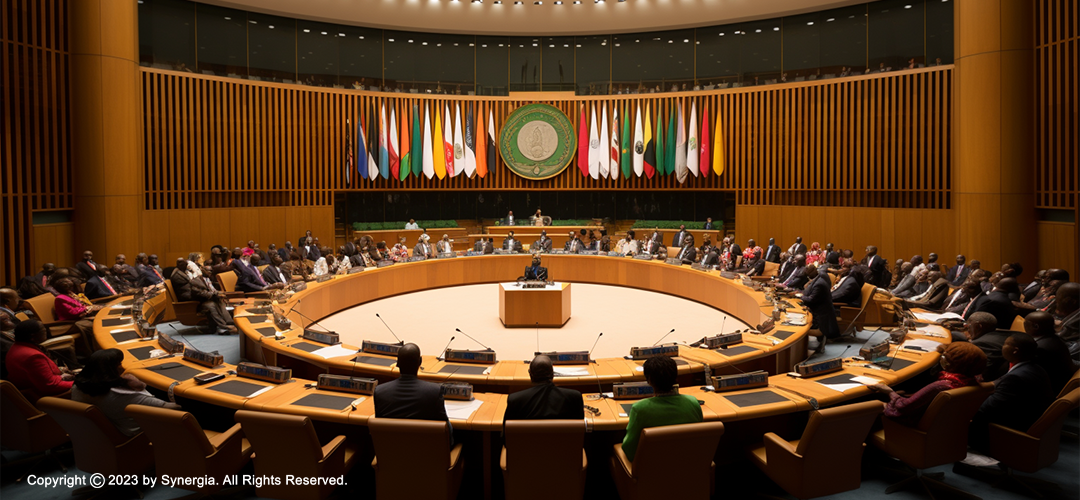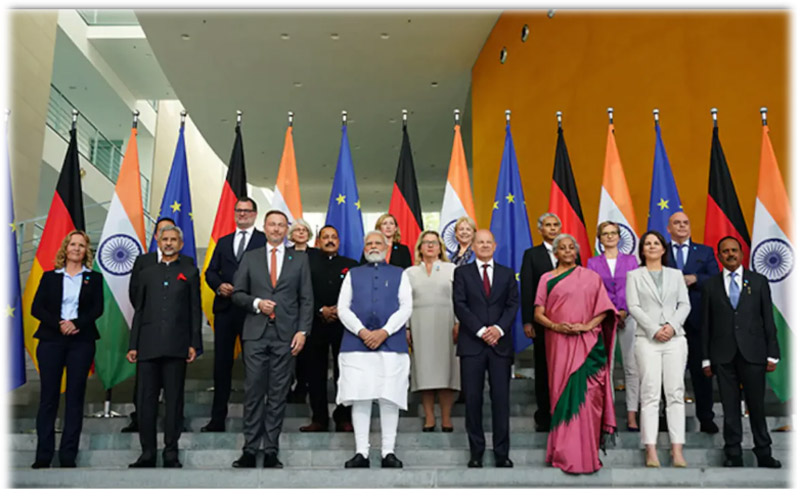G20: Reaching out to Africa!
June 24, 2023 | Expert Insights

In today’s multi-polar world, while great powers like the U.S. and China dominate the narrative, they alone cannot and should not be the ones to determine the planet's fate. Every nation, large and small, rich and poor, has a stake in the future of the planet, and its voice must be heard.
The Global South must be included in determining the future of the international order. In this context, Africa is the region with the greatest potential, yet with the least presence. Hence, the Indian proposal to give it a voice in the G20 grouping would necessarily resonate with the Global South.
Background
India has had a special relationship with Africa; therefore, its call as the current president of the G-20 to invite AU into the grouping is understandable. With its vast natural resources, burgeoning population and geographical extent, Africa can no longer be ignored or overlooked.
Anti-colonial movements in India and Africa also have a strong resonance with each other. India was one of the first colonized countries to gain its independence. It achieved this freedom through mostly non-violent means. This inspired many African nationalists. They saw how a diverse country like India could emerge from the shackles of imperialism. India gave Africa the hope of a new kind of future. Under colonial policies, many Indians settled in Africa. Here they faced nearly the same racial discrimination as the native Africans. A common bond of solidarity began to develop between Indians and Africans through this.
By the time the Cold War ended, the non-aligned movement was beginning to lose its edge. India and Africa moved apart. Now, India is re-emerging as a major power with a respectable standing on the world stage. Africa is also looking forward to greater possibilities. In light of all this, it is natural that India stood by Africa’s side.

Analysis
Prime Minister Modi’s call for the African Union to join the G20 could not have come at a better time. The world economy and political system is becoming increasingly more diversified. The old order where one side was the rule maker and the other was the rule taker is gone. Powerful countries can no longer impose decisions on less powerful ones by using threats and coercions. The international order is becoming more democratic in this sense. The so-called developed countries are finally discussing inequality caused by the inequities of racism and slavery. Africa is regaining its confidence.
Africans are no longer happy with decisions being made for them without them being at the table. They want a seat at the high table. And the West cannot stop them from achieving this no matter how hard it tries. Cosmetic changes in the world order will not cut it today as some sort of temporary arrangement.
The African Union (AU) has been seeking an international voice for a long time. G20 membership has been an aspiration of the AU for many years.
The historical relationship between India and Africa attests to their fates being closely intertwined. A strong and prosperous Africa is good for India in more ways than one.
The African Union has expressed deep appreciation for Prime Minister Modi’s call. It has called on “all other G20 members to support such a bid”. This is going to be the key challenge. The G20 is a highly diverse group. Each member country has its interests to look after. There is only one African country, South Africa, in this organization. So, it will be difficult.
The debate on whether the AU should join the G20 framework has been ongoing for some time. There are two sides to this question.
First is the argument favouring the AU's entry in the G20. The main talking point here is that the AU's entry will make the G20 more representative, inclusive and, as a result, more influential. The G20 was meant to bring together the developed and developing world. But without the presence of Africa, this endeavour is only half-fulfilled. The only way that the G20 can increase its credibility is by including the African Union.
The G20 is today involved with all the big issues the world faces. This includes climate change, energy transition, sustainable development, women’s empowerment, and the digital economy. The African perspective is indispensable in each of these issues.
Those who oppose the AU’s admission in the G20 argue that Africa’s entry could open a dangerous precedent. Other regional organizations could ask for similar membership. The very purpose of G20 as an organization would be diluted. However, this viewpoint ignores Africa’s economic potential, mineral wealth, expanding demographic advantage and growing economic integration with the rest of the world.
Nobody can stop Africa from having it day in the sun and fulfilling its destiny.
Assessment
- India has again taken a leading and progressive position on an important global issue. As the Global South comes up, Africa will be the next big story in more ways than one.
- Neo-colonial and imperialist policies in Africa are losing their salience. Africa can no longer be seen just as a playground for the big powers.
- Those who oppose the African Union’s G20 membership are stuck in the past. Ultimately a rejuvenated and self-confident Africa will be beneficial for the whole world.








Comments